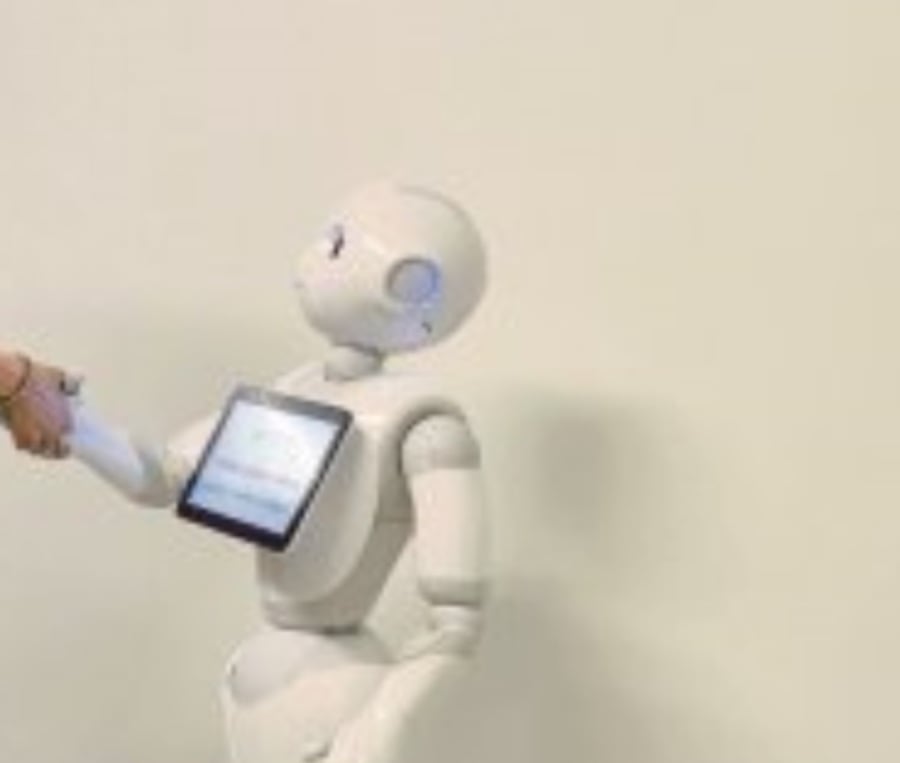ANOTHER grotesque episode took place last week that lent considerable weight to the belief that the world has indeed gone mad — a man in China married a robot.
When it was first carried as a news item by newspapers and television stations and became viral on the social media, I really thought it was nothing more than an April Fool’s joke spread a little belatedly as a sexist wisecrack about the opposite sex.
It also came about the same time when Spain announced the appointment, the first, of a minister of sex whose job will be to get people busy between the sheets. World gone madder.
Alas, it turned out to be true. There was a man who actually took a real robot, cold and lifeless, as wife.
The story about a Chinese engineer who did what he did after years of searching for a human spouse to no avail, became a worldwide sensation. Zheng Jiajia, a 31-year-old artificial intelligence expert, apparently started building his future “wife” at the end of last year, according to news reports.
Named Yingying, the bizarre robot could identify Chinese characters and images, and even say a few simple words, and Zheng had plans to upgrade the companion so that she would one day be able to walk and do chores around the house.
The pair “married” sometime last week in a simple ceremony in which the robot was adorned with a traditional red scarf over her head. Zheng’s mother and friends attended the wedding, and told local news sources that the move came after Zheng grew frustrated in his search to find a girlfriend.
Zheng is a former Huawei employee, and now works at Dream Town in Hangzhou, Zhejiang province, after leaving the telecom firm in 2014.
While the marriage may seem bizarre and plainly against the order of nature, experts have increasingly warned that robot-human relationships will become far more common in the years to come.
Author and robot expert Dr David Levy recently said humans would marry robots in the next 35 years. Not only this, but sex with robots will become more enjoyable than with other humans because of the advancement of artificial intelligence, he said.
A few weeks ago there was a similar story concerning a French woman, Lilly, who wanted to marry a robot. Only her partner is a 3D printed robot named Immovator who she designed herself, after realising she was attracted to humanoid robots rather than other people.
“Our relationship will get better and better as technology evolves,” she told a newspaper.
The “proud robosexual”, as she was called, said she always loved the voices of robots as a child, but realised at 19 she was sexually attracted to them as well. Physical relationships with other men confirmed the matter. Lilly said that she found physical relationships with men disgusting, preferring to love robots.
“My only two relationships with men have confirmed my love orientation, because I really dislike physical contact with human flesh.”
The robot-lover has since built her own dream man with open-source technology from a French company, and has lived with him for one year.
Two years ago, a seminar called Love and Sex with Robots was due to be held in Johor, but had to be cancelled by the authorities for its bizarre title and programme. But, one of the organisers maintained that they were not promoting any sexual act.
“In fact, it could have been quite a boring workshop until all this controversy cropped up,” he said.
“This is purely an academic conference, whereby professors from other countries gather and discuss a topic and submit their research papers.”
According to a synopsis of the Love and Sex with Robots book on Amazon, Levy, described as a leading expert in artificial intelligence, argues that robots will become objects of human desire and companionship sooner than expected.
It might ultimately all lead to metal fatigue. But, the signs are increasing that the world has seriously gone mad.
Syed Nadzri is a former NST group editor. He can be reached via [email protected]






